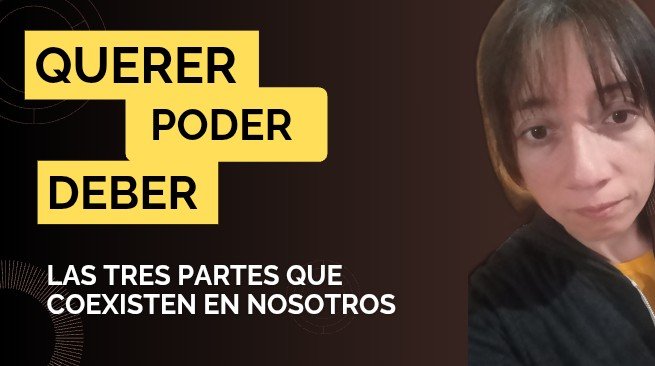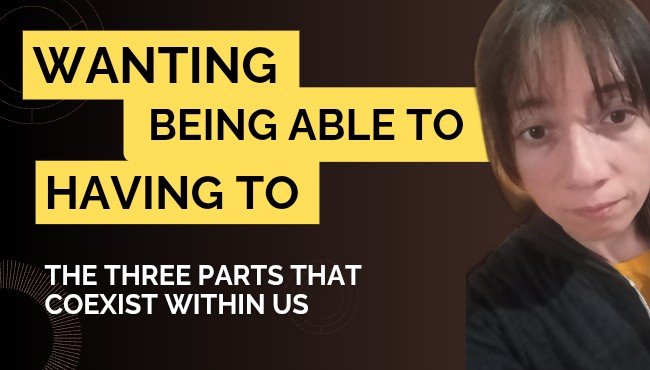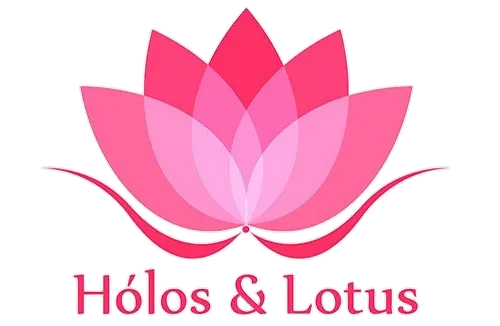Querer….poder…..deber….Las tres partes que coexisten en nuestros interior (esp-eng)

Abrasoles amigos usuarios.
En nuestra mente, sin darnos cuenta, existe una pirámide con tres palabras importantes en nuestro diario vivir.
Estas son muy simples y a la vez poderosas y muchas veces luchamos con ellas o contra las mismas.
En una parte de esta pirámide, hallamos el “querer”, aquella palabra que valga la redundancia es lo que queramos o anhelamos, ese deseo de intención o voluntad para realizar algo hasta lograrlo y así gozar con los frutos obtenidos.

En otro punto, encontramos el “poder”, aquella que no es más que la facultad y capacidad de realizar alguna acción, sea en el ámbito que sea, esto nos da notoriamente la sensación de poder absoluto y nos enaltece ante terceros y nosotros mismos.
Y por último en esta pirámide encontramos el “deber”, aunque esta es una que no gusta mucho. Esta parte nos refleja las obligaciones adquiridas y también una obligación moral con alguna otra persona.
Si seguimos deshilvanando estos puntos podemos comprender que dos de ellos se entrelazan de forma firme, estos son el “querer y el deber”. Aquí vemos reflejada esa autoimposicion qué nos hacemos a propia voluntad, pero esto ocurre solo en el librealvedrio, esto significa que si quiero algo debo esforzarme aunque no me guste.
Por ejemplo, pondré una vivencia personal para reflejar este punto.
Hace algunos años, en mi primer trabajo, quería tener dinero extra, esto era para las fiestas navideñas, mi disyuntiva era la siguiente: “quería tener el dinero extra, pero no quería trabajar en domingo, siendo este mi único día libre”. Luego de analizar los pros y contras, me incliné por lo quería y terminé trabajando el domingo, mi “deber” era trabajar las horas pactadas para recibir mi gratificación la cual era pagada el mismo día sin ser contabilizada en mi liquidación de fin de mes.
Obtuve lo que quería posterior a cumplir mi deber laboral de forma autoobligada ya que fue una obligación moral que adquirí con un tercero, en este caso mi ex jefa.
Tuve la recompensa pero perdí mi día de descanso.
Ahora en otro punto, podemos hacer alusión a ese dicho que solemos usar, “querer es poder”, esto nos refleja la fuerza de voluntad y convicción, misma que nos dice que “podemos lograr todo aquello que nos proponemos”.
En una parte más profunda, podemos ver que estas tres palabras las aplicamos a nuestra propia salud, por ejemplo:
Debo cuidar mi estado físico y mental, realizar deporte, comer sano y respetar mis horas de sueño.
Puedo escoger, decidir, perdonar, sanar, amar, ser feliz.
Quiero conocerme, amarme, respetarme, valorarme, ser fuerte y que todo esto se vea tanto por dentro y fuera de mi ser.

Estas son cosas que a veces pasamos por alto y cuando nos damos cuenta cuesta mucho volver a tenerlas presente.
Pero, aunque esto ocurra, siempre podemos tratar de volver a encauzar todo nuevamente.
En resumen, estas palabras que no son más que valores personales que se expanden y coexisten entre sí, y hasta entran en disputas, están presentes para recordarnos cuánta humanidad tenemos.
En ocasiones, se distorsiona llevándonos a sus lados oscuros, donde sentimos que es nuestro deber sentir rencor ante algún acto que nos agravio, un sentimiento que puede ser justificado, claro que sí, pero a la larga todo se olvida y una sana disculpa ayuda mucho.
Otras tantas podemos sentir que queremos ser holgazanes, pero luego ese querer vuelve a su origen y nos ponemos proactivos nuevamente.
Y por último y no menos importante, algunas veces sentimos que podemos ser autosuficientes y alejarnos de todo y todos, pero a la larga entendemos que siempre necesitaremos de la ayuda de alguien más y eso no es algo malo. Allí es donde elegimos que podemos ser más fuertes con ayuda que solos.
Así que este es mi punto del día domingo, querer, poder y deber ¿qué opinas tú al respecto?
English

Hello, dear users.
In our minds, without realizing it, there is a pyramid with three important words in our daily lives.
These are very simple yet powerful, and we often struggle with them or against them.
In one part of this pyramid, we find "wanting," that word which, forgive the redundancy, is what we want or long for, that desire or will to do something until we achieve it and thus enjoy the fruits of our labor.

In another part, we find "power," which is nothing more than the ability and capacity to perform an action, whatever the field may be. This gives us a noticeable feeling of absolute power and exalts us before others and ourselves.
And finally, at the bottom of this pyramid, we find "duty," although this is one that is not very popular. This part reflects the obligations we have acquired and also a moral obligation to someone else.
If we continue to unravel these points, we can understand that two of them are firmly intertwined: "wanting" and "duty." Here we see reflected that self-imposition that we do of our own free will, but this only occurs in free will, which means that if I want something, I must make an effort even if I don't like it.
For example, I will use a personal experience to illustrate this point.
A few years ago, in my first job, I wanted to earn extra money for the Christmas holidays. My dilemma was this: "I wanted to earn the extra money, but I didn't want to work on Sunday, which was my only day off." After analyzing the pros and cons, I leaned toward what I wanted and ended up working on Sunday. My "duty" was to work the agreed-upon hours to receive my bonus, which was paid on the same day without being counted in my end-of-month paycheck.
I got what I wanted after fulfilling my work duty in a self-imposed manner, as it was a moral obligation I had acquired with a third party, in this case my former boss.
I got the reward, but I lost my day off.
Now, on another note, we can refer to the saying we often use, "where there's a will, there's a way," which reflects our willpower and conviction, telling us that "we can achieve anything we set our minds to."
On a deeper level, we can see that we apply these three words to our own health, for example:
I must take care of my physical and mental health, exercise, eat healthy, and get enough sleep.
I can choose, decide, forgive, heal, love, and be happy.
I want to know myself, love myself, respect myself, value myself, be strong, and for all of this to be seen both inside and outside of myself.

These are things that we sometimes overlook, and when we realize it, it is very difficult to bring them back to mind.
But even if this happens, we can always try to get back on track.
In short, these words, which are nothing more than personal values that expand and coexist with each other, and even come into conflict, are there to remind us how much humanity we have.
Sometimes, it is distorted, leading us to its dark side, where we feel it is our duty to feel resentment towards an act that has wronged us, a feeling that can be justified, of course, but in the long run, everything is forgotten, and a sincere apology helps a lot.
Many other times, we may feel that we want to be lazy, but then that desire returns to its origin, and we become proactive again.
And last but not least, sometimes we feel that we can be self-sufficient and distance ourselves from everything and everyone, but in the long run, we understand that we will always need someone else's help, and that is not a bad thing. That is where we choose that we can be stronger with help than alone.
So this is my point for Sunday: wanting, being able, and having to. What do you think about it?
Las imágenes usadas fueron creadas en canva con recursos gratuitos
El texto fue traducido con deepl en su formato free


Amigo 1 (Marcos): (Viendo el último modelo de móvil, con ojos brillantes)
—¡Uf, cómo quiero ese teléfono! ¡Lo quiero ya mismo!
Amigo 2 (Laura): (Mirando la etiqueta del precio y luego la cartera de Marcos)
—Marcos, con todo respeto, no puedes comprarte eso ahora mismo. Acabas de pagar la renta y dijiste que estabas justo.
Amigo 3 (Sofía): (Con una sonrisita y levantando una ceja)
—Bueno, Laura, aquí entramos en el clásico dilema del querer, poder y deber. Porque, seamos honestos, de poder, Marcos puede. Podría pasar la tarjeta de crédito, endeudarse hasta las cejas, o incluso, en un acto de locura, vender un riñón en el mercado negro… ¡Puede!
(Marcos y Laura la miran con los ojos abiertos)
Así es, diste un claro ejemplo de estas palabras en una acción cotidiana.
Uno quiere, y puede endeudarse tal cual dijiste, luego vaya que peripecias para no salir del presupuesto y pagarlas cuotas mensuales.
Gracias por nutrir este tema con este ejemplo tan bueno.
Hola, Muy pero muy buen post amiga!
Saludos!
Hola 👋
Muchas gracias por tu apreciación y apoyo 😊
Congratulations @issymarie2! You have completed the following achievement on the Hive blockchain And have been rewarded with New badge(s)
You can view your badges on your board and compare yourself to others in the Ranking
If you no longer want to receive notifications, reply to this comment with the word
STOPCheck out our last posts:
excelente post!
Gracias.
¡Enhorabuena!
✅ Has hecho un buen trabajo, por lo cual tu publicación ha sido valorada y ha recibido el apoyo de parte de CHESS BROTHERS ♔ 💪
♟ Te invitamos a usar nuestra etiqueta #chessbrothers y a que aprendas más sobre nosotros.
♟♟ También puedes contactarnos en nuestro servidor de Discord y promocionar allí tus publicaciones.
♟♟♟ Considera unirte a nuestro trail de curación para que trabajemos en equipo y recibas recompensas automáticamente.
♞♟ Echa un vistazo a nuestra cuenta @chessbrotherspro para que te informes sobre el proceso de curación llevado a diario por nuestro equipo.
🏅 Si quieres obtener ganancias con tu delegacion de HP y apoyar a nuestro proyecto, te invitamos a unirte al plan Master Investor. Aquí puedes aprender cómo hacerlo.
Cordialmente
El equipo de CHESS BROTHERS